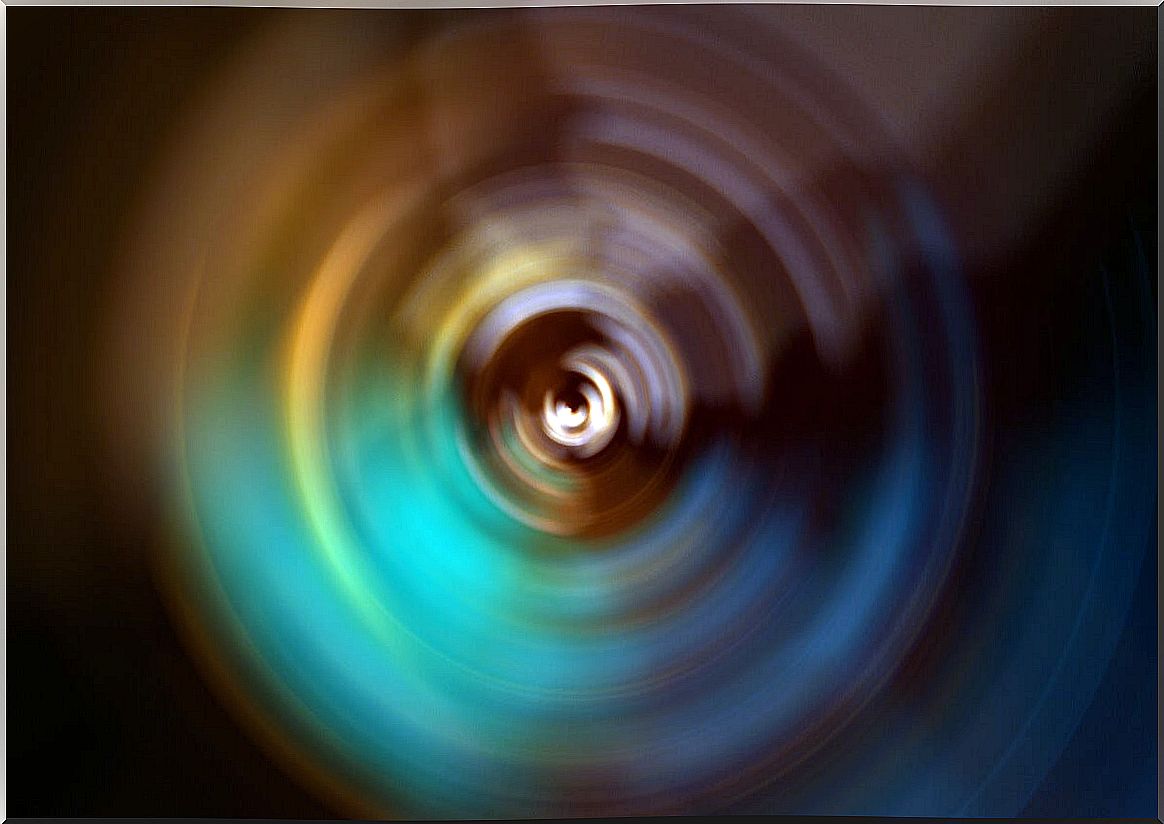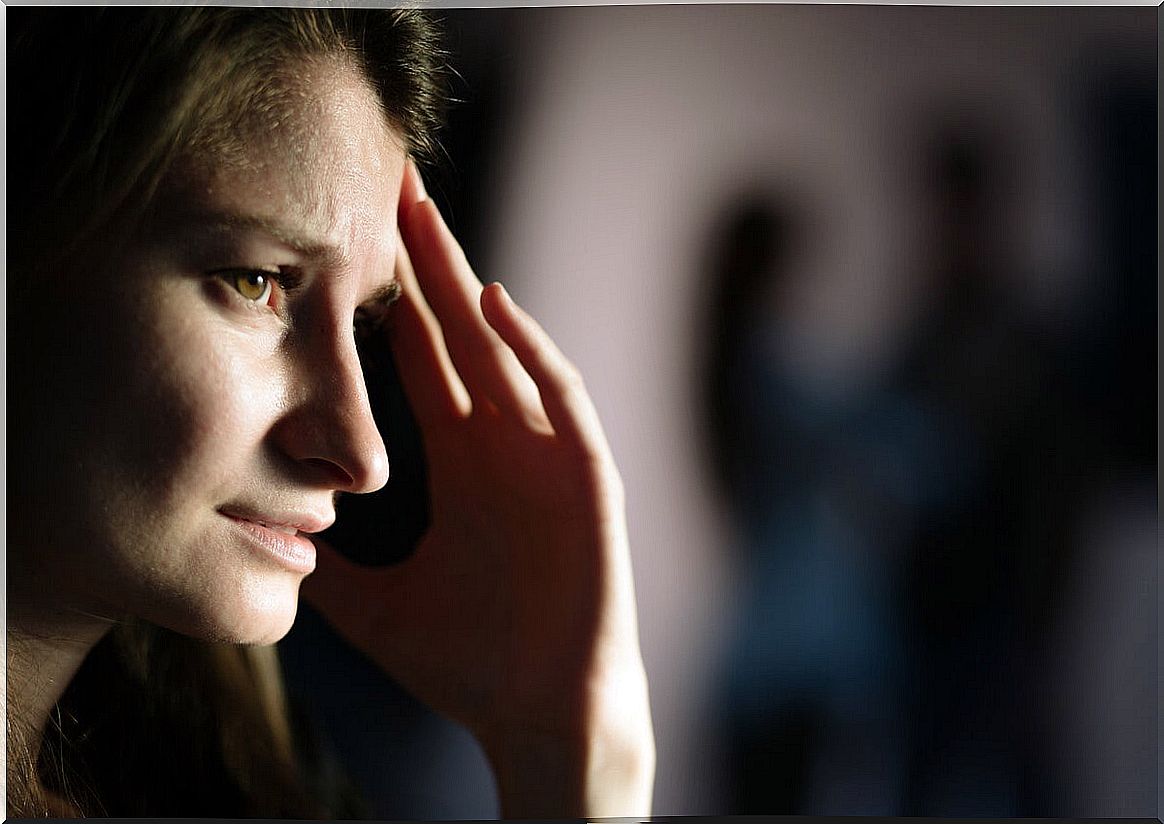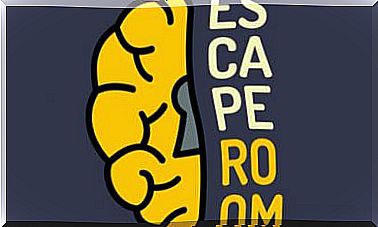What Is A Flashback?

The concept of flashback includes different meanings. Thus, a flashback in a film is the interruption of the action in progress to present the events that, occurred in a previous time, are related to it. Instead, a flashback is also a narrative technique that involves transferring the action of the story to the past of the story, which allows the background of the characters to be presented once the story has begun.
Finally, a flashback is an episode characterized by visual and perceptual alterations that appear as a consequence of the consumption of hallucinogenic drugs. In this article, we will focus on the latter meaning and discuss this perceptual phenomenon in a little more detail, which has also been called the flashback effect or persistent hallucinogenic perception disorder (TPPA).

Flashback: what is it?
The flashbacks are defined as perceptual events that constitute a perception disorder, and are characterized by visual illusions or hallucinations, and distort sensations. The flashbacks typically appear in people who use hallucinogens, such as LSD (lysergic acid diethylamide a), psilocybin (DMT), ecstasy (MDMA) and mescaline. They also appear in people who use barbiturates and marijuana (although more rarely).
Thus, a flashback is an intense re-experiencing of events that have occurred previously that come to mind in the form of a sequence of images in a more traumatic way.
It is a phenomenon characterized by the spontaneous repetition of the same hallucinations that had been experienced when the aforementioned hallucinogenic substances had been consumed. That is, the person is not consuming, but through flashbacks he relives the sensations, images or hallucinations experienced at the time of ingestion of the drug. The flashbacks several hours after consumption of drugs usually appear.
TPPA: a perceptual disturbance
These types of flashbacks are also called “the flashback effect “. In 1986, the Psychiatric Association of the United States included in its manual of mental disorders the so-called persistent hallucinogen perception disorder (TPPA) ”. The TPPA was defined as an experimentation of visual phenomena similar to those of a “trip” time after having taken the substance in question.
It is not necessary for the person to have used the substance more than once to experience flashbacks ; that is, just one time is enough to experience them. In the TPPA it is necessary to rule out other sources of visual and perceptual alteration.
Hallucinogenic drugs
Hallucinogenic drugs are those that, in non-toxic doses, cause profound alterations in the perception of the reality of those who consume them.
When a person consumes hallucinogens, they can see, hear and feel things that do not really exist. These are very different sensations from those experienced while awake. There are even some hallucinogens that produce rapid and intense emotional swings.
One of its effects: persistent perception disorder (HPPD)
As we have seen, one of the effects of hallucinogenic drugs is flashbacks , also called persistent flashbacks . In fact, they are often categorized as one of its long-term effects and this phenomenon has sometimes been referred to as “persistent hallucinogen perception disorder” (HPPD).
HPPD involves hallucinations and other visual disturbances (such as seeing halos or trails attached to moving objects). These symptoms are sometimes mistaken for neurological disorders (such as a stroke or brain tumor).
Persistent hallucinogen perception disorder often occurs in conjunction with another long-term effect of hallucinogens: psychosis. HPPD does not happen to all hallucinogen users; It happens a bit like having a bad trip , that some experience it and others do not. In this sense, it is a bit of a “lottery”. However, there are certain studies that state that HPPD is seen more often in people with a history of psychological problems.
A single exposure to the drug is enough
In line with what we mentioned, the National Institute on Drug Abuse (NIDA) reports that flashbacks and persistent psychosis can appear even in people who have only used hallucinogens once. Logically, the more times it is consumed, the more likely it is to develop these types of effects.

Final thoughts
As we have seen, flashbacks are one of the effects of hallucinogenic drugs. The person usually lives them with bewilderment or even with fear and anguish. This is so because you experience it in a “drug-free” state, in the sense that it can appear hours or even days after the drug is used.
There is currently no established treatment for this symptom, although antidepressant and antipsychotic drugs are often prescribed. Psychotherapy is also used. However, the most effective “treatment” to avoid flashbacks is directly not to consume the substances that trigger them.









